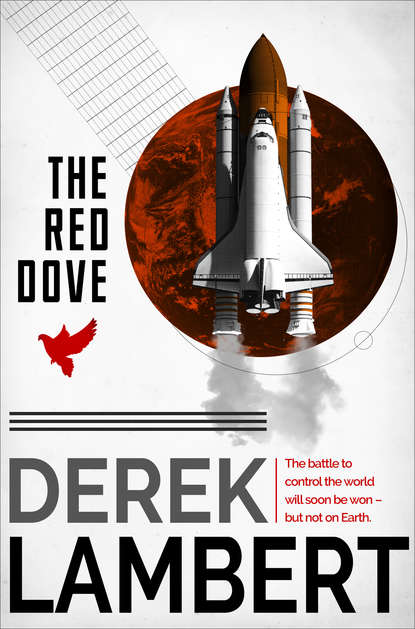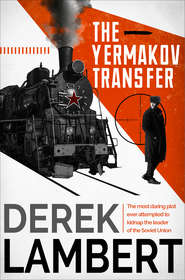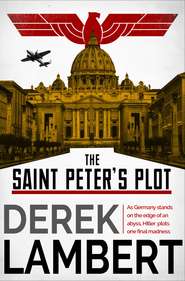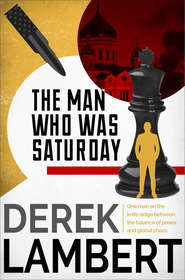По всем вопросам обращайтесь на: info@litportal.ru
(©) 2003-2024.
✖
The Red Dove
Автор
Год написания книги
2018
Настройки чтения
Размер шрифта
Высота строк
Поля
As he read on Massey’s breathing quickened. This section was by a psychiatrist:
After five hours the condition of the subject (not patient, Massey noted) returned to normal and I formed the opinion that he had been suffering from temporary spatial disorientation aggravated by a vestibular – inner ear – condition. There is no reason to suppose that, if this latter condition was treated by passive methods, linear acceleration etc., the subject’s normality would not be maintained.
So I wasn’t crazy! And yet. …
The next passage was by Reynolds.
In my opinion the subject may, under earlier psychiatric examination, have deliberately suppressed his desire to impart information to foreign agencies such as the Soviet Union. Such a phenomenon was not unknown among Servicemen returning from Vietnam, but whereas, in the majority of such cases, they had nothing of value to impart, Robert Massey is in possession of information – the embryonic plans for a space shuttle is a case in point – that, if divulged, could do immeasurable harm to the United States’ aerospace programme. In this context it should be remembered that any future war between superpowers will be directed from space.
It must also be appreciated that the fact that the Press briefing was cancelled, and that the subject has subsequently been incommunicado, has caused intense speculation in the media and it is now generally accepted that Massey suffered a stress problem. In my submission we should not only support that conclusion, we should embellish it to the extent that any plausibility he might have with representatives of the Soviet Union will be totally destroyed.
Hatred replaced relief.
Next a report from another psychiatrist after Massey had been flown to a CIA clinic near the Agency’s headquarters at Langley, eight miles from downtown Washington.
Acting on instructions, I decided to submit the subject to a course of hallucinogenic drugs that would simulate the required mental attitude for this operation. The appropriate drug was selected with care to minimise the risks of paranoia, chronic anxiety and other symptoms of psychosis. It was finally decided to administer lysergic acid diethylamide which has fewer detrimental effects than other hallucinogens, although the possibility of some chromosomal damage cannot be ruled out. Within two hours of the initial administration the desired hallucinations with characteristic synaesthesia – crossing of the senses, colour being heard etcetera – had manifested themselves. The principal disadvantage in the use of this drug is increased tolerance. As the treatment was to be prolonged this necessitated increased dosage.
He had believed they were trying to cure him and all the time they had been launching him on a series of LSD trips.
Massey remembered asking the CIA operative during a period of lucidity about the silver-haired man who was often in the background. The operative had replied: ‘That’s Reynolds, he’s in charge.’
When he had first learned that the CIA had leaked the fact that he was crazy he had despised Reynolds. Now …
‘The bastard,’ he whispered. The dossier dropped from his hands on to the bed, twenty pages of conclusions unread.
Then he wept.
When he had finished Rosa’s arms were around him, long black hair curtaining her face, big soft breasts touching his chest. ‘I’m scared,’ she said. ‘Tell me what it’s all about, Roberto. Tell me I needn’t be scared …’
‘I don’t know what it’s all about. Not yet.’
‘That man Reynolds, he frightens me.’
‘Reynolds is a dedicated man.’
‘I don’t understand.’ She picked up the dossier. ‘What is this writing that has made you shiver, cry out and,’ her voice gentle, ‘weep?’
He took the dossier from her and dropped it on the floor. ‘It’s a murder without a death,’ he said, and before she could question him again he drew her to him finding, to his astonishment, that despite everything, he was aroused; then he was inside her and together they found a little comfort.
When finally she slept Massey got out of bed and went to the chest of drawers beneath the window. Reynolds had been right: he would be waiting for him in the morning.
He opened a drawer and took out a World War II Colt .45 automatic.
Dawn. Two figures walking on the hard sand beside the gentle waves, their presence emphasising the emptiness around them.
Reynolds wore a camouflaged windcheater and grey trousers tucked into rubber boots. Massey, shaved for the occasion, wore sneakers and jeans and an old tweed jacket, leather-patched at the elbow, over a white, roll-neck sweater. He wore the jacket to hide the gun stuck in the belt of his jeans.
The storm had blown itself out leaving its signature on the sand – driftwood, seaweed, cans and plastic bottles. The sea was milky calm and pink-flushed. Sanderlings pattered among the jetsam and in the sky a single, low-flying pelican kept the two men company.
‘I understand how much you hate me,’ Reynolds said. His hands were plunged deep in the pockets of the windcheater, his stride was measured; his voice rang with sincerity.
‘I don’t hate you any more,’ Massey told him. You don’t hate a doomed man. ‘I despise you, sure, but I don’t hate you.’
‘It had to be done. You were a risk. In war millions die for their country. Peace is merely a euphemism for another kind of war, an undeclared war, when men are equally expendable in the interests of the majority. In the Soviet Union,’ he said, glancing at Massey, ‘they would have eliminated you.’
Massey kicked a plastic bottle. Later in the day the debris would be cleared from the beach, Reynolds’ body with it. Now was the time to kill, while the sky to the west was still cold, while the day was primitive. But still he delayed. Once, while Reynolds’ attention was distracted by a leaping fish, he slipped his hand inside his jacket and felt the butt of the automatic.
Reynolds said: ‘We in the intelligence agencies attract a lot of criticism, some of it justified. But mostly it’s misguided. Without such agencies the United States, the whole Western concept, would be submerged by the Soviet Union, by tyranny. They talk about our Dirty Tricks Department: it’s lily white compared with its Russian counterpart. These people,’ Reynolds continued, an edge to his voice, ‘would have us haul down our defences, self-destruct. They remind me of a crowd demonstrating for the Communist dream: if they got that dream they wouldn’t be allowed to demonstrate, they’d be shot instead.’
‘What do you want from me?’ Massey asked, thinking: ‘I have to know before I kill him.’
The pelican veered away and headed out to sea. There were a few fleecy clouds in the sky and the pearl-pink of dawn had strengthened to blood-red.
‘I’ve got a lot to give you,’ Reynolds said enigmatically.
‘You should, you took enough away.’
‘I want to give you back your self-respect. To give you a cause. You had one once.’
‘Sure, to explore space. And to safeguard it.’
‘Which by definition means keeping ahead of the Russians. When we get to Washington I’ll show you the documented evidence of Soviet aggressive intent in space.’
‘So we’re going to Washington?’ Massey stopped walking and stared at the rays of the sun splintering on the water. He said: ‘Stop crapping around, Reynolds, what do you want?’
When Reynolds told him he wondered whether he was experiencing another hallucination.
He said: ‘You mean you want me who once babbled about sharing our secrets with the Russians to persuade a Soviet cosmonaut to defect?’
Reynolds said: ‘That’s one of the reasons why it has to be you. When you were …’ Reynolds hesitated, choosing his words, ‘… when you were ill the Soviets discovered that you wanted to communicate with them. Therefore they will be sympathetic, now that you are cured, when you make contact with them prior to meeting Talin.’
‘Why didn’t they ever try to contact me?’ Massey held up one hand and answered himself: ‘Because they thought I was out of my mind, a raving, 22-carat lunatic. You made sure of that.’
They walked on, more slowly now. Behind them their footprints had moved a little closer together. Before I kill him, Massey thought, I have to know everything. He picked up a small branch of driftwood scoured bone-white by sea and sun; it was shaped like a hand-gun; he pretended it was the gun in his belt.
Reynolds said: ‘You see now why I had to let you read the dossier? You would never have believed that I would seriously ask you to undertake a mission like this when I had once dismissed you as crazy.’
Reynolds had done more than dismiss him as crazy: he had emblazoned his craziness across the world. As a result Helen had divorced him; if you were the Vassar-educated daughter of an oil-rich fat cat in River Oaks it was fine being married to an astronaut; being married to a madman was different.
Massey asked: ‘What makes you think the Russians will take me seriously now? I presume you mean I would have to pull a fake defection.’
‘I’ll come to that later,’ Reynolds told him. ‘First the other reasons why it has to be you.’
‘Because the computer says so?’
‘Of course.’ Reynolds turned in his tracks. ‘Let’s go back.’ Massey followed because he still had to know.
A jet flew high over the Gulf spinning a white thread behind it. Reynolds took his hands from the pockets of his windcheater – the sun was beginning to warm the day – and ticked off the other reasons on his fingers.











